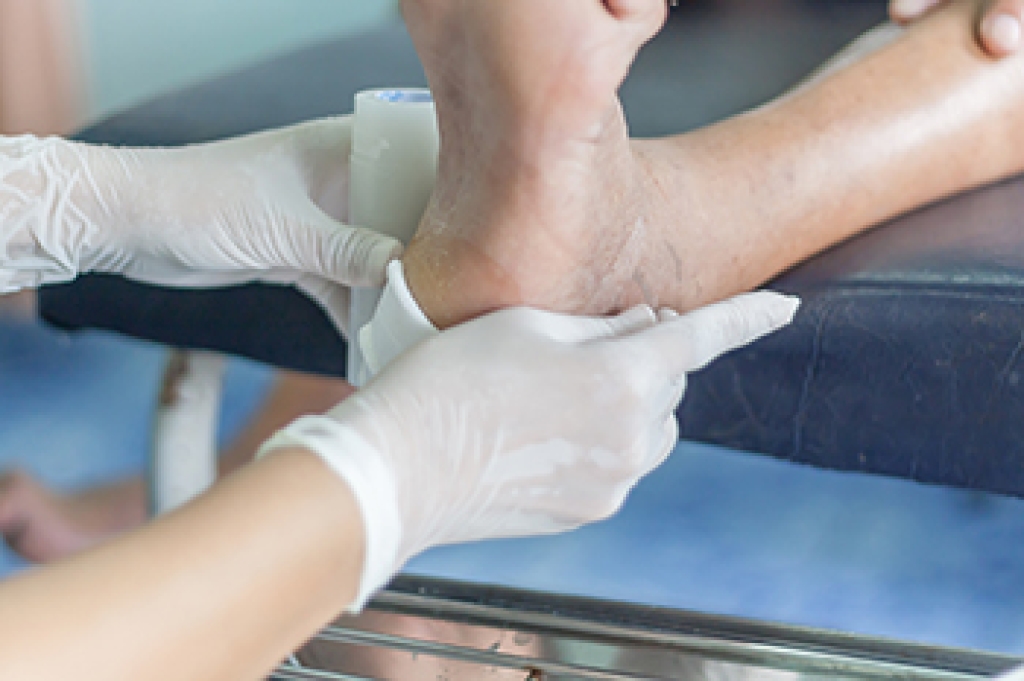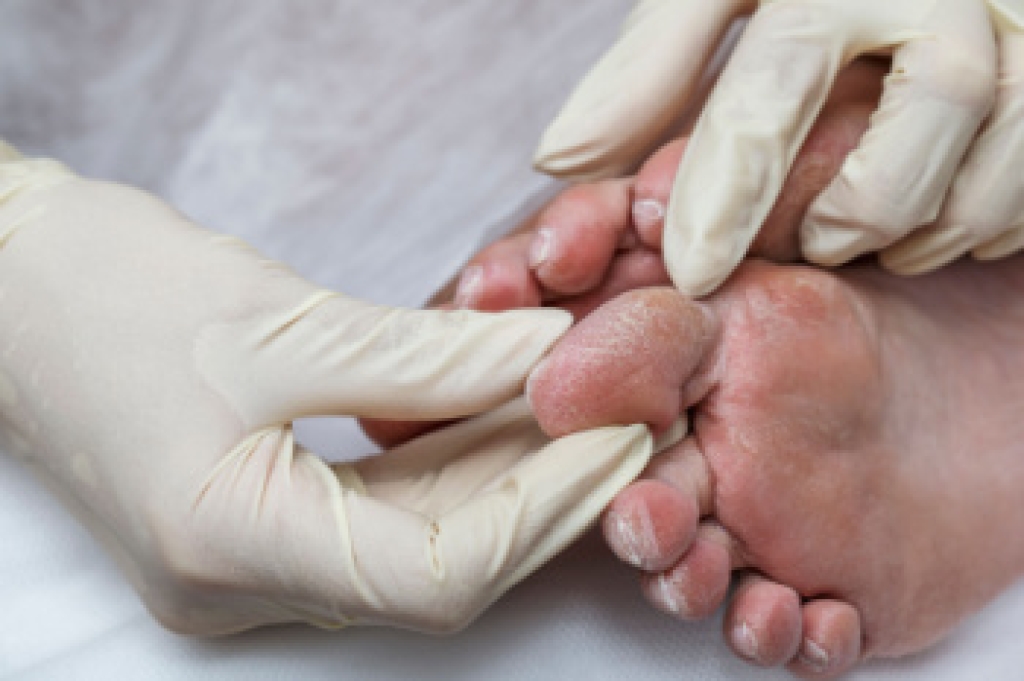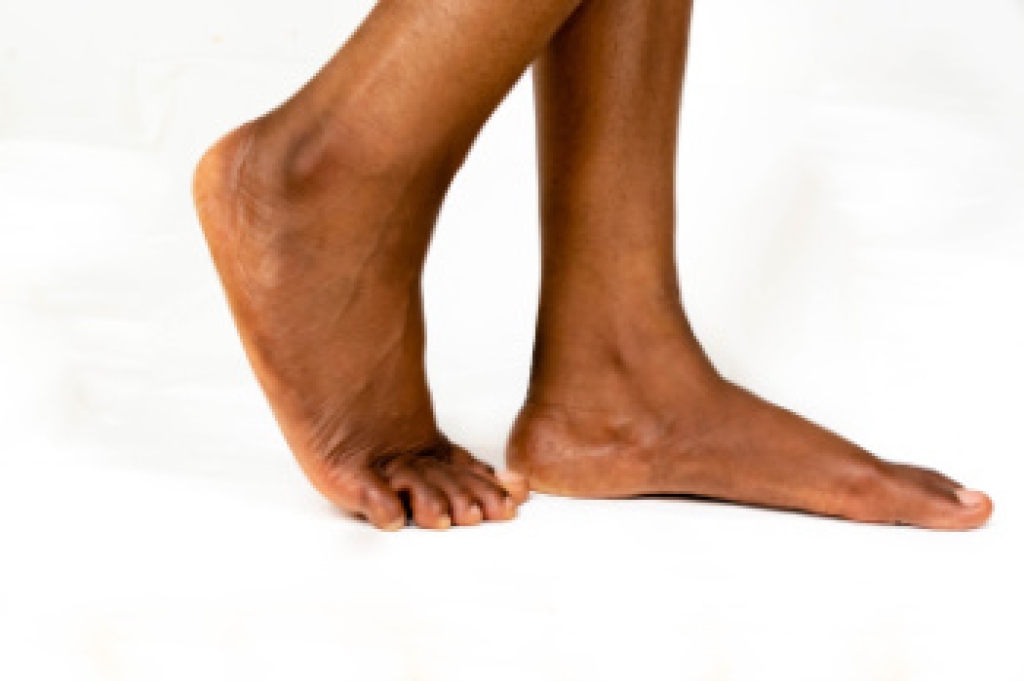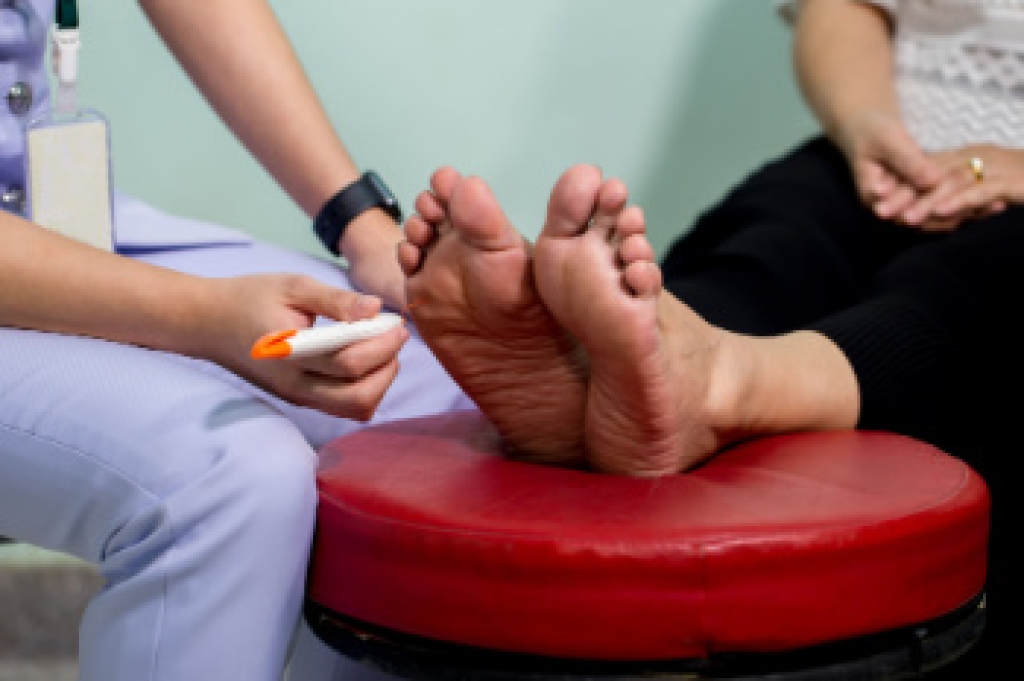
Most foot wounds heal with time and proper care, but some fail to improve, despite treatment. Poor circulation is a common reason, as reduced blood flow limits oxygen and nutrient delivery needed for healing. Diabetes can also slow recovery by affecting nerves, immune response, and blood vessels, making injuries harder to feel and treat early. Ongoing pressure from walking, wearing ill-fitting shoes, or abnormal foot structure may repeatedly reopen wounds. Infection is another major factor, as bacteria can delay tissue repair and increase inflammation. Certain wounds become chronic when underlying conditions are not addressed. Skin breakdown may continue if pressure points are not offloaded, or if moisture and friction persist. Early evaluation is important to prevent complications. When a foot wound does not show signs of healing or continues to worsen, it is suggested that you see a podiatrist as quickly as possible for appropriate treatment.
Wound care is an important part in dealing with diabetes. If you have diabetes and a foot wound or would like more information about wound care for diabetics, consult with the foot specialists from Affiliates in Foot Care, P.C.. Our doctors will assess your condition and provide you with quality foot and ankle treatment.
What Is Wound Care?
Wound care is the practice of taking proper care of a wound. This can range from the smallest to the largest of wounds. While everyone can benefit from proper wound care, it is much more important for diabetics. Diabetics often suffer from poor blood circulation which causes wounds to heal much slower than they would in a non-diabetic.
What Is the Importance of Wound Care?
While it may not seem apparent with small ulcers on the foot, for diabetics, any size ulcer can become infected. Diabetics often also suffer from neuropathy, or nerve loss. This means they might not even feel when they have an ulcer on their foot. If the wound becomes severely infected, amputation may be necessary. Therefore, it is of the upmost importance to properly care for any and all foot wounds.
How to Care for Wounds
The best way to care for foot wounds is to prevent them. For diabetics, this means daily inspections of the feet for any signs of abnormalities or ulcers. It is also recommended to see a podiatrist several times a year for a foot inspection. If you do have an ulcer, run the wound under water to clear dirt from the wound; then apply antibiotic ointment to the wound and cover with a bandage. Bandages should be changed daily and keeping pressure off the wound is smart. It is advised to see a podiatrist, who can keep an eye on it.
If you have any questions please contact our office located in Woburn, MA . We offer the newest diagnostic and treatment technologies for all your foot and ankle needs.




